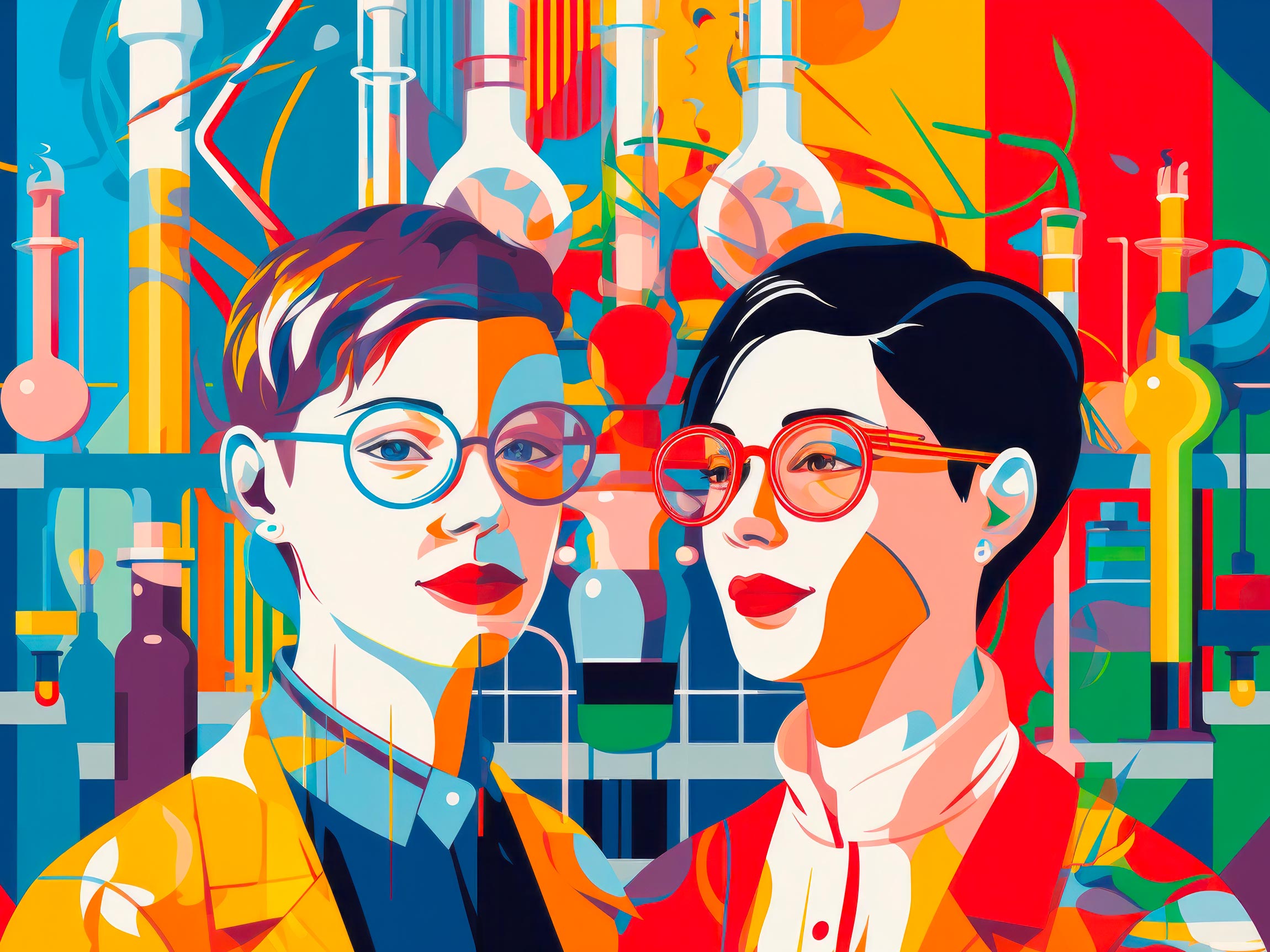Within this dynamic field, LGBTQ+ individuals have made remarkable contributions that have not only driven scientific advancements but have also underscored the importance of inclusivity in fostering innovation.
Illuminating Diversity: LGBTQ+ Trailblazers in Biotech and Science
Here are a few of the exceptional LGBTQ+ individuals who have left an indelible mark on the world of biotech and science, showcasing their groundbreaking achievements and the enduring impact of their work.
Joan Roughgarden (1946-Present): A prominent evolutionary biologist and transgender woman, Joan Roughgarden challenged traditional notions of gender and sexuality in the animal kingdom. Her research on the diversity of sexual behaviors in animals has led to a deeper understanding of the role of social and sexual interactions in evolution.
Simon LeVay (1943-Present): An openly gay neuroscientist, Simon LeVay conducted groundbreaking research on the neurobiology of sexual orientation. His work, including studies on the hypothalamus and sexual dimorphism, contributed to our understanding of the biological basis of sexual orientation.
Jacques Ruffié (1935-1997): A French immunologist and gay activist, Jacques Ruffié made significant contributions to the field of immunology. His research on the human immune system’s response to infections and diseases advanced our understanding of immunology and paved the way for new therapies.
Ruth Gates (1962-2018): A lesbian marine biologist, Ruth Gates was a leading expert on coral reefs. Her research focused on coral adaptation and resilience in the face of climate change and coral bleaching. Gates was dedicated to conservation efforts and inspiring public awareness about the importance of coral reefs.
Martine Rothblatt (1954-Present): A transgender woman and entrepreneur, Martine Rothblatt is known for her contributions to the biotech and pharmaceutical industries. She founded United Therapeutics and developed treatments for pulmonary hypertension, demonstrating how LGBTQ+ individuals can excel in biotech entrepreneurship.
Karissa Sanbonmatsu (1972-Present): A lesbian structural biologist, Karissa Sanbonmatsu is recognized for her research on RNA and chromatin structure. Her work has implications for understanding gene expression and regulation, contributing to advances in molecular biology.
Challenges and Triumphs
While LGBTQ+ individuals have contributed significantly to biotech, they have also navigated unique challenges that highlight the need for continued progress toward inclusivity and acceptance.
1. Overcoming Bias: LGBTQ+ individuals in biotech have often faced bias and discrimination, hindering their professional growth and contributions. Advocates like Dr. Anne Fausto-Sterling, a transgender biologist, have worked tirelessly to challenge such biases and promote gender inclusivity in scientific discourse.
2. Mentorship and Representation: Limited representation of LGBTQ+ individuals in leadership positions can impact mentorship opportunities. Dr. Jennifer Pietenpol, a lesbian oncologist and researcher, emphasizes the importance of LGBTQ+ role models in fostering the next generation of biotech professionals.
3. Advocacy and Visibility: Many LGBTQ+ scientists have dedicated their careers to advocacy work, driving policy changes and promoting inclusive practices. Dr. Paul Ong, a gay scientist and advocate, emphasizes the significance of advocating for LGBTQ+ health equity and challenging disparities.
Promoting a Culture of Inclusivity
Creating an inclusive environment requires deliberate efforts from institutions, organizations, and individuals. Biotech companies and institutions can take several steps to promote inclusivity and recognize LGBTQ+ contributions:
Representation Matters: Highlight the achievements of LGBTQ+ scientists through workshops, seminars, and public talks. Celebrate LGBTQ+ history and achievements in biotech to create role models for aspiring scientists.
Mentorship and Support: Establish mentorship programs that connect LGBTQ+ professionals with students and early-career scientists. Providing guidance and support can help LGBTQ+ individuals navigate the challenges of academia and industry.
Diverse Leadership: Promote diversity in leadership positions. LGBTQ+ individuals in leadership roles can drive organizational change, champion inclusive policies, and create supportive environments.
Outreach and Education: Collaborate with LGBTQ+ organizations and advocacy groups to raise awareness and promote inclusivity within the biotech sector. Engage in outreach efforts to attract diverse talent to the field.
A Shared Vision for the Future
The remarkable contributions of LGBTQ+ individuals in biotech exemplify the power of diverse perspectives in advancing scientific discovery and innovation. As the industry continues to evolve, it is crucial to embrace and celebrate this diversity, fostering an environment where all individuals can contribute to the transformative journey of biotechnology. By championing inclusivity and recognizing LGBTQ+ voices, the biotech sector can pave the way for a more equitable and impactful future.


